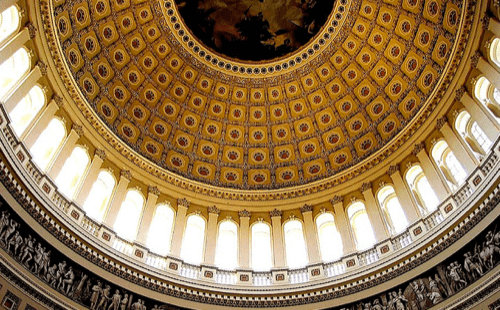
Yesterday, an influential congressman announced plans for a “comprehensive review” of U.S. copyright law, potentially the first such effort in more than 35 years. And that’s got hearts palpitating across Silicon Valley, Hollywood and Capitol Hill.
But don’t get too excited about the possibility for reforms that would safeguard an open and innovative Internet just yet. The legislator in question, House Judiciary Committee Chairman Bob Goodlatte, has been carrying water for Hollywood and other Big Copyright interests for years. In other words, this smells like a trap for reformers.
(See also: The Internet Assault On TV Is Working)
There’s no shortage of things to fix in the U.S. copyright system, which was last overhauled back when networking mostly meant dumb terminals connected to a minicomputer or a mainframe. Yet here’s where Goodlatte is coming from:
- He supported SOPA, which would have let federal agencies effectively censor alleged copyright infringers from the Internet without due process or much of an appeal;
- He co-sponsored CISPA, which would allow private business to share your personal information with federal agencies without sufficient privacy protections;
- He’s generally considered one of the bigger copyright maximalists in the U.S. Congress.
So what’s he really up to? Here’s what Goodlatte said in a statement:
The Internet has enabled copyright owners to make available their works to consumers around the world, but has also enabled others to do so without any compensation for copyright owners. Efforts to digitize our history so that all have access to it face questions about copyright ownership by those who are hard, if not impossible, to locate. There are concerns about statutory license and damage mechanisms. Federal judges are forced to make decisions using laws that are difficult to apply today. Even the Copyright Office itself faces challenges in meeting the growing needs of its customers – the American public.
Compensation for copyright, digitizing published works, licensing, and cutting through the complexity of existing copyright law — these are all ripe subjects for reform. There’s just little reason to think Goodlatte is the right person to craft compromises that offer fair compensation for copyright holders without stifling the development of new digital-media services or crushing individual privacy.
Confederacy Of Dunces
Generally speaking, the odds are against innovation-friendly copyright reform in the current Congress. Democrats have, by and large, been captured by Hollywood when it comes to discussion of copyright terms, digital rights and piracy. in their thinking on this issue. Republicans, meanwhile, have occasionally shown glimpses of original thinking on these subjects — often as not, only to recant them as quickly as Hollywood lobbyists could pick up a phone.
Last November, for instance, the House Republican Study Committee released a position paper debunking various copyright “myths,” among them the notions that the current system compensates creators, benefits the public, and promotes innovation. It does no such thing, staffer Derek Khanna wrote; instead, the report called out copyright as an institutional monopoly that crushes new markets before they can prove themselves.
Within twenty-four hours, the GOP had retracted the report, walking the party’s position back to the same tired arguments that we had all heard before. Not much later, Khanna himself was out of a job. Techdirt, which has followed the issue extensively, has also noted that Register of Copyright Maria Pallante has suggested that enforcement agencies focus on large-scale piracy (a good idea) but that copyright never inhibited innovation (incorrect).
Absent a SOPA-style revolt by major Internet companies against the current copyright regime, which favors owners over creators and old media industries over the digital world, the best we can probably hope for is that Goodlatte’s review doesn’t make a bad situation worse.

















